Iran Hands Over Scores Of Afghan Prisoners To Taliban
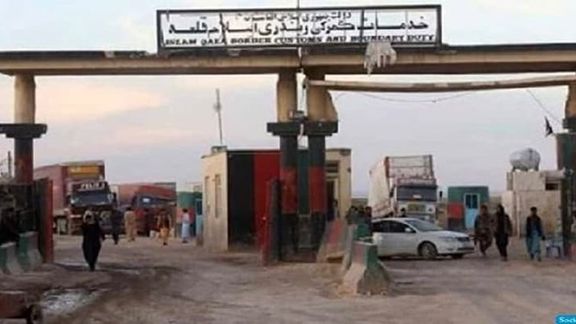
Over 100 Afghans serving prison sentences in Iran were handed over to the Taliban on Sunday.

Over 100 Afghans serving prison sentences in Iran were handed over to the Taliban on Sunday.
“As a result of the efforts of the Ministry of Foreign Affairs… 101 Afghan prisoners were transferred again in Nimruz in connection with the agreement reached with the Islamic Republic of Iran,” said the Taliban’s Foreign Ministry on Monday.
Fazl Mohammad Haqqani, Chargé d'affaires of the Afghan Embassy in Tehran told Radio Farda, the Persian Service of Radio Free Europe in Prague that “250 to 260 more prisoners will be handed over to the Islamic Emirate at Islam Qala border on Wednesday.”
According to Haqqani, the prisoners were mostly incarcerated on charges of drug trafficking and fighting, but none of them were sentenced to death.
Human rights organizations had earlier announced at least six Afghan citizens were executed in Iranian prisons and some more have received the death penalty.
At least 457 Afghan prisoners were also handed over to Afghanistan by Iranian authorities back in March, amid deep concerns over the Taliban's human rights record.
Despite international pressure not to recognize Kabul's government, Tehran is handing over the inmates to the Taliban which may put their lives in danger.
Afghanistan's embassy was also handed over to the Taliban by Iran, provoking outrage among Afghans.
However, the tensions over the water share of Iran from the Helmand River have strained the ties between Tehran and the Taliban.
Iran has accused Afghanistan's Taliban of violating a 1973 treaty by restricting the flow of water from the river to Iran's parched eastern regions, an accusation denied by the Taliban.

The CEO of Russia’s heavily sanctioned VTB bank has denied regime claims that it will open a branch in Tehran.
In May, Iranian Deputy Trade Minister Alireza Peyman-Pak made the announcement that VTB would be the first Russian bank with a direct presence in Iran, but this was quashed by Andrei Kostin, the bank's CEO.
“We are not going to open a bank in Iran. We opened a representative office, and two people work there," he said, speaking to Reuters.
The CEO explained that the office is simply a contact point where requests can be submitted, claiming that VTB does not plan to "majorly change" the geography of its presence.
After Russia's war against Ukraine, VTB was one of the Russian banks that was completely sanctioned by the United States and the European Union and banned from operating in European countries.
The bank has subsequently been forced to close its branches in Europe and Africa and has only branches now, in Azerbaijan, Armenia, Kazakhstan, and Vietnam.
According to Iranian regulations, representative offices of foreign banks only play the role of liaison between the bank and Iranian organizations and companies.

Regime agents in Iran shot and killed a relative of a 9-year-old boy murdered during protests in November, as people gathered at his grave to mark his birthday.
The boy, Kian Pirfalak died when security forces fired at his family car for no apparent reason. Almost overnight, the child became a symbol of regime brutality on social media and during street protests.
Sunday was his 10th birthday and the people of his town Izeh, in the oil-rich province of Khuzestan, tried to gather at the cemetery to commemorate him but faced both regular police and forces sent by the Revolutionary Guard which had deployed in the town to prevent possible protests.
Pouya Molaei-Rad, an 18-year-old student and cousin of Kian’s mother was shot and killed by security agents near the cemetery in unclear circumstances. Eyewitnesses say that there was a confrontation with the police. A video showed the multiple gunshot wounds on the chest.
The government immediately alleged that the young man was driving toward the cemetery when he hit three security personnel and was shot multiple times, dying in hospital later. But the wounds on the victim's chest seem like straight shots, which many people see as evidence that he was not shot inside the car.
The circumstances of the shooting are not entirely clear. Some say he was caught off-guard by the sudden appearance of security forces on the road as he was driving, while the government says he intentionally ran over security agents.
Nevertheless, the incident has turned into a rallying cry for all regime opponents in Iran and abroad.
The child victim and his 18-year-old relative come from the large and fiercely independent Bakhtiari tribal people, which have to a large extent become urbanized, but maintain kinship loyalties.
Their killings will for a long time antagonize ethnic Bakhtiaris toward the Islamic regime. In the tribal culture, no one can rest until revenge is exacted for the killing of a blood kin.
As Kian Perfalak was laid to rest on November 18, his mother Mahmonir (Zaynab) Molaei-Rad made a fiery speech at her son’s grave. She conveyed a strong message of protest against Supreme Leader Ali Khamenei who she seemed to hold directly responsible for her son’s killing.
Iranian opposition figures abroad issued messages Sunday as soon as the news of Molaei’s killing emerged.
Exiled Prince Reza Pahlavi tweeted: “The criminal regime has murdered another of our youth. The name of Pouya Molai-Rad, this young Bakhtiari patriot, has become eternal. This child-killing regime, however, is not eternal.”
He added that the “evil” regime “will be removed and the perpetrators of the murder of Iranian children and youth will face trial. This is a national and unbreakable promise.”
Alireza Akhondi, an Iranian-born member of Sweden’s parliament and an active opposition figure said in a Persian tweet that the day when the “criminal regime will be toppled with the will of the people” is not too far away and vowed that the perpetrators of regime crimes will be held responsible.
US-based opposition figure Masih Alinejad tweeted that even family members of Moalei-Rad and Pirfalak have been arrested after Sunday’s incident.
“The Islamic Republic has become one of the world’s top executioners of its own citizens. The only way the clerical regime has engaged with an educated youthful society is through the muzzle of a gun,” Alinejad said.
Hossein Ronaghi, an opposition activist in Iran and a former political prisoner praised Mahmonir Molaei-Rad, saying that Kian’s mother “is the darling of hearts in Iran…”

Iran’s president Ebrahim Raisi started a tour of Latin America Monday strategically targeting fellow sanctioned nations.
Raisi is expected to visit Venezuela, Cuba, and Nicaragua - all sanctioned by the United States.
“The common position of Iran and the three countries is to stand against the domination system and confront unilateralism,” claimed Raisi before his trip.
The tour will begin with Raisi's visit to Venezuela, which is a close ally of Tehran receiving oil and other assistance. This is his 13th foreign trip since taking office.
Last year, Venezuelan President Nicolas Maduro visited Tehran and signed a 20-year cooperation plan to take bilateral relations to a new level.
Along with his chief of staff and deputy for political affairs, the president is accompanied by his ministers of foreign affairs, petroleum, defense, and health.
“In addition to friendly political ties with Venezuela, Nicaragua and Cuba, Iran has also had good cooperation with these countries in the field of energy, industry, agriculture, science and technology, and medicine and treatment,” added Raisi.
Last month, a Cuban delegation visited Tehran and signed 13 agreements that included cooperation in biotechnology, healthcare, trade, banking, agriculture, and sports.
The three countries are key political allies for Iran. The United States has accused Iran of circumventing sanctions by exporting crude to countries including Venezuela, while also helping the oil-rich Latin American country to rebuild its energy infrastructure.
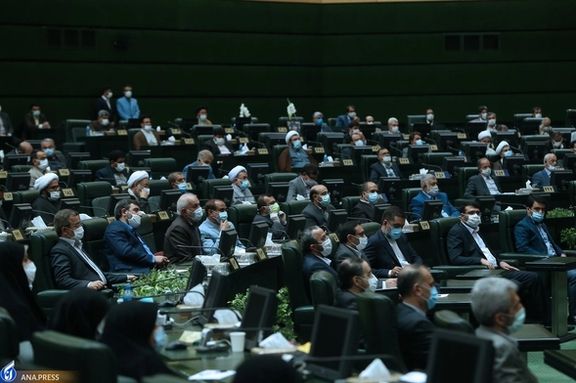
Iranian lawmaker Jalil Rahimi Jahanabadi has sharply complained that the people can no longer tolerate the hardships generated by the current economic crisis.
Jahanabadi told the Iranian Labor News Agency (ILNA) that the ruling faction has created a social and political impasse that has even led to the isolation of some regime insiders, in addition to ostracizing reformists and moderates.
He said as a result of this political impasse, the government has no channels of communication with many social groups, including women and minorities.
Jahanabadi added: "The government has alienated all those who used to run in elections and bring some 80 percent of the population to the polls and win up to 20 million votes," adding that "the insiders who are allowed to run for the parliament can win between 10 to 15 percent of the votes."
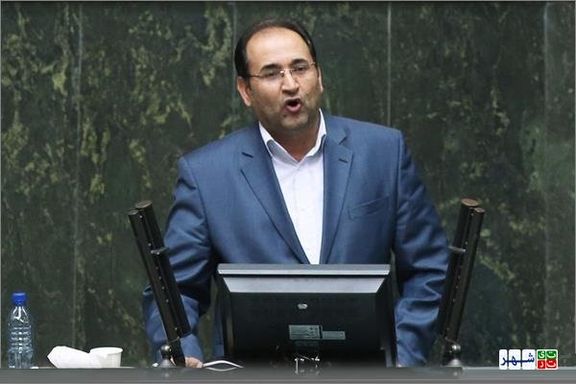
Jahanabadi further called on the government to bring all those who have been alienated back to the political arena through national reconciliation that should also include the release of all political prisoners and prisoners of conscience.
Speaking on the country's dire economic situation, Tehran Mayor Alireza Zakani who is a part of the ruling hardliner faction said that during the two years Ebrahim Raisi has been president home prices have risen by 70 percent in the capital Tehran.
He added that 48 percent of those living in Tehran and 41 percent of Karaj residents near Tehran are tenants. Zakani also said that renting an apartment has become a dream for those who live on regular wages. Buying a home has turned into an impossible dream.
Zakani said that 2.3 million apartments were built in Iran under the government of President Mahmoud Ahmadinejad (2005 – 2013). Nonetheless with an annual inflation rate of 25 percent house prices rose by 4.7-fold. He added that under President Hassan Rouhani with an annual inflation rate of 33 percent, house prices rose by 8.7-fold.
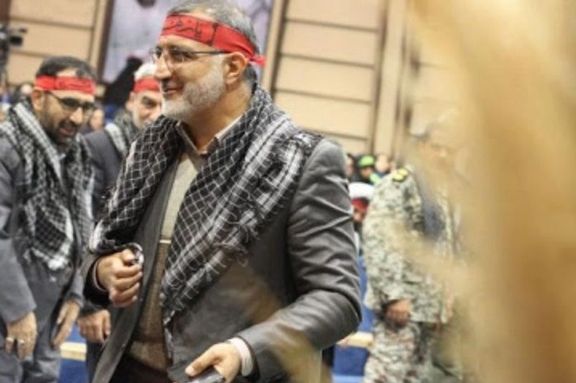
The main reason for inflation in the housing market has been the Iranian currency’s steady decline in the past 44 years since the establishment of the Islamic Republic. In 1978, one US dollar bought 70 rials, while in the past few months the dollar has reached 500,000 rials.
Accordingly, real estate has climbed, not in real terms, but in par with dollar’s rate.
Meanwhile, in an article in Etemad Online, former Government spokesman Ali Rabiei called on politicians in all political factions to support any move by the government that would return Iran to the international community.
He said: "Iran has distanced itself from the world."
Many Iranians, however, believe that it is the international community that has isolated the Islamic Republic for its controversial nuclear program, developing ballistic missiles, destabilizing the region through its proxy groups and financing terrorism abroad.
Meanwhile, Rabiei advised Iran's hardliners to avoid abusing ideology and taking advantage of the people's religious beliefs as these have been the reason for complaints by other countries against Iran.

In another development, centrist politician Gholamhossein Karbaschi pointed out in an interview with Ham Mihan newspaper, which was also carried by Khabar Online website that a big problem in Iran is that "As soon as President Raisi issues an order, others in his government carry out exactly the opposite."
As an example, he said: "When Raisi calls for a reduction in prices, the day after prices begin to rise and this disappoints the people." Karbaschi added: "This will not happen if Raisi questions his men about their decisions when they go wrong." He stressed: "People can trust the government only when they see that officials stand by their promises."
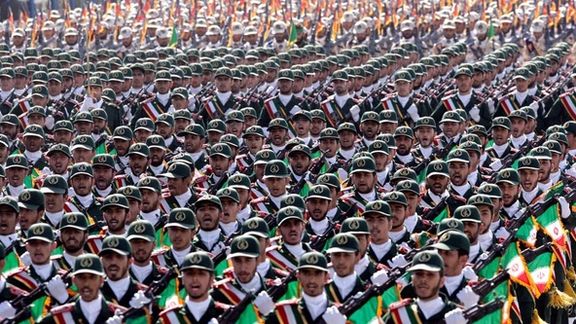
Iran’s exiled prince Reza Pahlavi citing a group of French-Iranian lawyers says there are no legal obstacles for the EU to sanction the Revolutionary Guard.
In a tweet on Sunday, Reza Pahlavi urged the European authorities to reconsider their current position and proscribe the IRGC as a terrorist group, based on a report the lawyers have presented to his office and heads of governments.
“Listing this entity, which is dedicated not to protecting Iran or Iranians but instead the power of the dictatorship, would be a strong and long-awaited recognition of reality and a show of support to my compatriots who are fighting for freedom and democracy in our country.”
Unlike the United States which in 2019 under former President Donald Trump put the IRGC on its Foreign Terrorist Organizations (FTO) list, European countries avoided the designation in the past few years and prioritized diplomacy with the Islamic Republic in the hope of concluding a nuclear deal.
Many politicians in France, Germany, and other European countries have been keen to pursue the IRGC’s designation by the EU and say that it has been long overdue. In January, the European Parliament approved a resolution with absolute majority to designate Iran’s Islamic Revolutionary Guard Corps (IRGC) as a terrorist organization. However, the EU refused to do so, with its Foreign Policy Chief Josep Borrell saying the move needs a ruling by a European court.
The document cited by Pahlavi refers to the Common Position adopted by the EU following the 9/11 attack, saying that the same definitions used to describe persons, groups and entities involved in that terrorist acts apply for the IRGC.
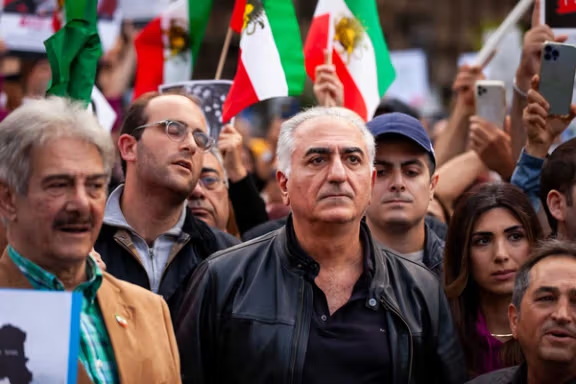
The legal report says a "terrorist act" shall mean any intentional act that may seriously damage a country or an international organization, seriously intimidating a population, or unduly compelling a government and seriously destabilizing or destroying the fundamental political, constitutional, economic or social structures of a country.
Having stated the statutes that provide the legal basis for listing an entity on the European list of terrorist organizations, the group of lawyers went on to provide examples of such acts by the IRGC to prove that the entity deserves to be designated, like all the other groups that the EU has blacklisted.
“The study of the IRGC confirms that it constitutes a structured organization which has carried out terrorist attacks and which has been the subject of decisions by competent authorities which the Council of the European Union could take into account in order to proceed with its inclusion on the European list of terrorist organizations,” read part of the document.
A noteworthy point in the document is the often-ignored duty of the IRGC according to the Islamic Republic’s Constitution: Exporting the revolution.
“The Constitution distinguishes the mission assigned to the IRGC to continue the Islamic Revolution, considering ultimately that the fall of the regime of the Shah of Iran and the establishment of the regime of the Islamic Republic do not constitute the end of the Islamic Revolution,” it reads, arguing that IRGC's mission to pursue the Islamic Revolution ideologically, beyond the borders of Iran may be among the main reasons behind its extra-territorial destabilizing activities.
Among the reasons that legally justifies the designation of the outfit, the document points out that the IRGC has planned and executed numerous operations aimed at assassinating Iranian opposition figures. “It also carried out attacks against foreign personalities and institutions that the Islamic Republic considered at the time as enemies or contrary to its interests,” added the document.
The documents also provided a long list of assassinations and terrorist acts tracing back to the IRGC as the cases that the EU can use to proscribe the group.
The cases include the assassination of Shapour Bakhtiar, the last prime minister of the Shah in 1991; assassination of Shahriar Shafiq, the nephew of the Shah of Iran, in 1979; the kidnapping of David Stuart Dodge, the president of the American University of Beirut, in 1982; attacks on the US Embassy and US Marines in Beirut in 1983; wave of attacks in Paris, 1985 and 1986; the Mykonos restaurant assassinations in 1992; and attack on AMIA in Argentina in 1994; as well as recent plots, such as the attempted assassination of John Bolton in 2022 and attempted assassination of opposition figure Masih Alinejad.
A presupposition prevailing throughout the text is that the European Union seeks to designate the IRGC and only lacks the proper legal bases, as proclaimed by Borrell. However, it seems that the reluctance to blacklist the IRGC is based on political reasons.
Talks in Vienna to revive the 2015 JCPOA nuclear deal came to an abrupt stop in 2022, reportedly for Iran’s insistence that the IRGC be removed from the US FTO list.